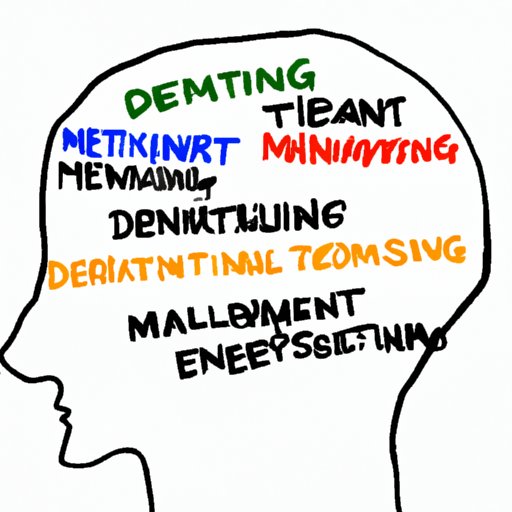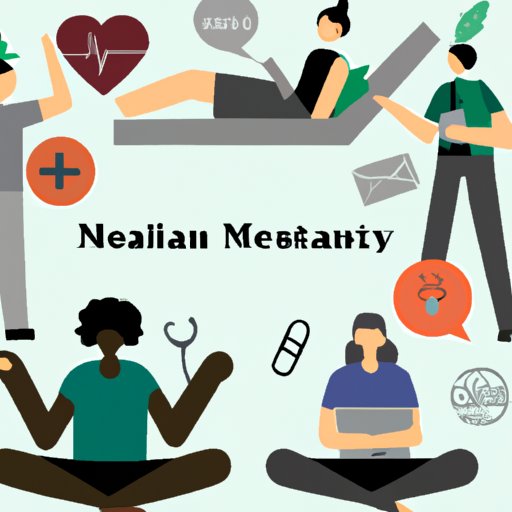Introduction
Mental health is a broad concept that encompasses various aspects of our psychological, emotional, and social wellbeing. It is an important factor in our overall health and can affect our ability to lead a healthy and productive life. Mental illness can be caused by a variety of factors, including genetic predisposition, environmental stressors, and trauma. Poor mental health can have serious consequences for our physical, emotional, and social wellbeing.

Impact of Mental Illness on Physical Health
Mental illness can have long-term health consequences if left untreated. Research has shown that people with mental illness are at an increased risk of developing physical health problems such as heart disease, stroke, diabetes, and obesity. In addition, those suffering from mental illness often struggle with substance abuse, which can further exacerbate physical health issues. Risk factors for developing mental illness include family history, chronic stress, traumatic events, and social isolation.
Connection Between Mental Health and Overall Wellbeing
Mental health is closely linked to our overall wellbeing. Studies have found that those with poor mental health are more likely to experience feelings of sadness, loneliness, and hopelessness. These feelings can have a negative impact on our quality of life, making it difficult to engage in activities that bring us joy or satisfaction. Good mental health can also be associated with greater personal happiness, improved concentration, and better decision-making.

Impact of Mental Health on Work Productivity
Poor mental health can have a significant impact on our ability to perform at work. Those suffering from mental illness may struggle with concentration, motivation, and completing tasks. This can lead to lower productivity, missed deadlines, and decreased job satisfaction. Mental illness can also increase the risk of absenteeism, as those affected may find it difficult to attend work due to their symptoms.
Role of Mental Health in Relationships
Mental health can also affect our relationships with others. Those with poor mental health may struggle with communication, leading to misunderstandings and conflict. Social isolation can also occur when someone is struggling with mental illness, as they may feel disconnected from their peers and unable to participate in activities or form meaningful connections.

Development of Resilience Through Mental Health
Mental health can be a powerful tool for developing resilience. By learning to identify and manage our emotions, we can build coping skills that can help us navigate difficult times. Mental health can also help us to recognize our strengths, enabling us to make positive changes in our lives and to face challenges with greater confidence.
Importance of Self-Care to Maintain Mental Health
Self-care is an important factor in maintaining good mental health. Stress management strategies such as mindfulness and relaxation techniques can help us to reduce anxiety and improve our mood. Exercise, nutrition, and getting enough sleep are also essential for keeping our minds and bodies healthy. Taking time out to focus on ourselves can help us to stay healthy, both mentally and physically.
Conclusion
Mental health is an important aspect of our overall wellbeing. Poor mental health can have serious consequences for our physical, emotional, and social wellbeing, affecting our work productivity, relationships, and overall quality of life. It is important to understand the importance of mental health and to seek help if needed. Taking care of our mental health through self-care can help us to develop resilience and cope with life’s challenges.
(Note: Is this article not meeting your expectations? Do you have knowledge or insights to share? Unlock new opportunities and expand your reach by joining our authors team. Click Registration to join us and share your expertise with our readers.)
